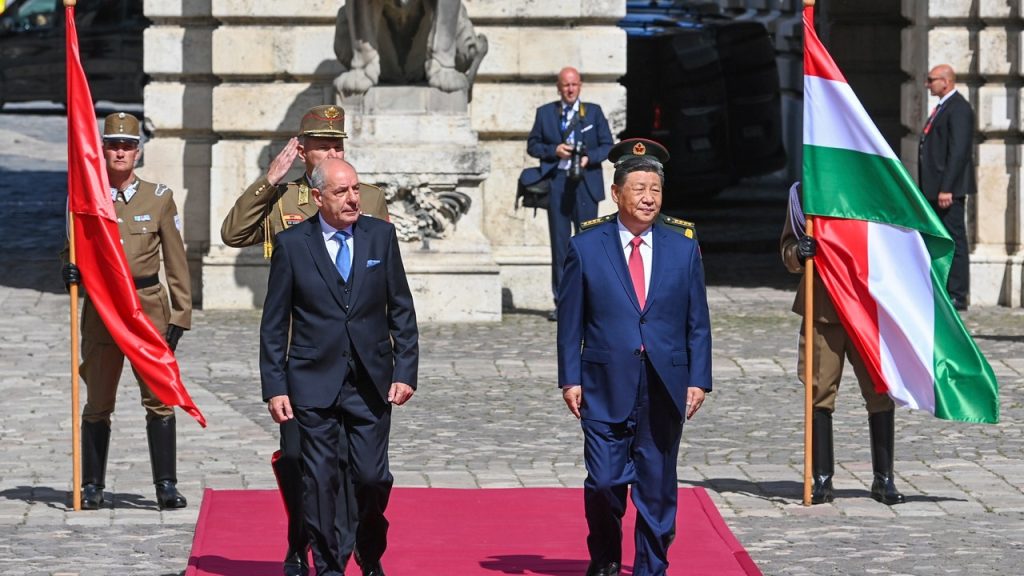Hungary and China signed multiple agreements during Chinese President Xi Jinping’s visit to Budapest, aimed at deepening economic and cultural cooperation. The trip is part of China’s efforts to strengthen its economic footprint in Europe, with Hungary being an important strategic partner. Hungarian Prime Minister Viktor Orbán praised the friendship between the two countries and promised to continue facilitating Chinese investments in Hungary, creating opportunities for technology cooperation.
China has invested heavily in Hungary and views the country as a significant foothold within the European Union. Hungary recently announced the opening of an electric vehicle production factory by Chinese manufacturer BYD, signaling a potential disruption in the region’s auto industry. The two countries are also collaborating in the EV battery manufacturing sector and on a railway project as part of China’s Belt and Road Initiative. Xi and Orbán expressed mutual agreement on the importance of the initiative in aligning with Hungary’s strategies and fostering China-EU relations.
Various agreements and memoranda of understanding were signed during Xi’s visit, including a strategic partnership agreement. Despite no major investments being announced during the briefing, discussions were initiated for projects such as a freight railway bypass of Budapest and a rail link to Budapest Ferihegy airport. Orbán highlighted China’s growing role in global economics and the shifting balance of power, stating that expanding economic cooperation in nuclear energy would be a priority for Hungary.
During Xi’s visit, Budapest experienced road closures and increased security measures as both supporters and critics gathered to demonstrate. Chinese and Hungarian citizens congregated near Buda Castle, some showing support for Xi while others protested against China’s policies towards Tibet and Taiwan. Hungarian opposition lawmakers reported encounters with individuals claiming to be Chinese embassy volunteers, who restricted the display of certain flags along Xi’s motorcade route. Tibetan protesters clashed with individuals in red caps, leading to conflicts over flag displays in the city.
Critics raised concerns over the presence of Chinese officials regulating activities on Hungarian streets, questioning the level of freedom of expression allowed during Xi’s visit. Tenzin Yangzom of the International Tibet Network criticized Hungary’s government for permitting Chinese nationals to interfere with protest activities in the country. The incidents highlighted the delicate balance between maintaining diplomatic relations with China and upholding democratic values and rights within Hungary. Despite the tensions during Xi’s visit, the agreements signed between Hungary and China signify a growing partnership between the two countries and China’s increasing influence in Central Europe.


